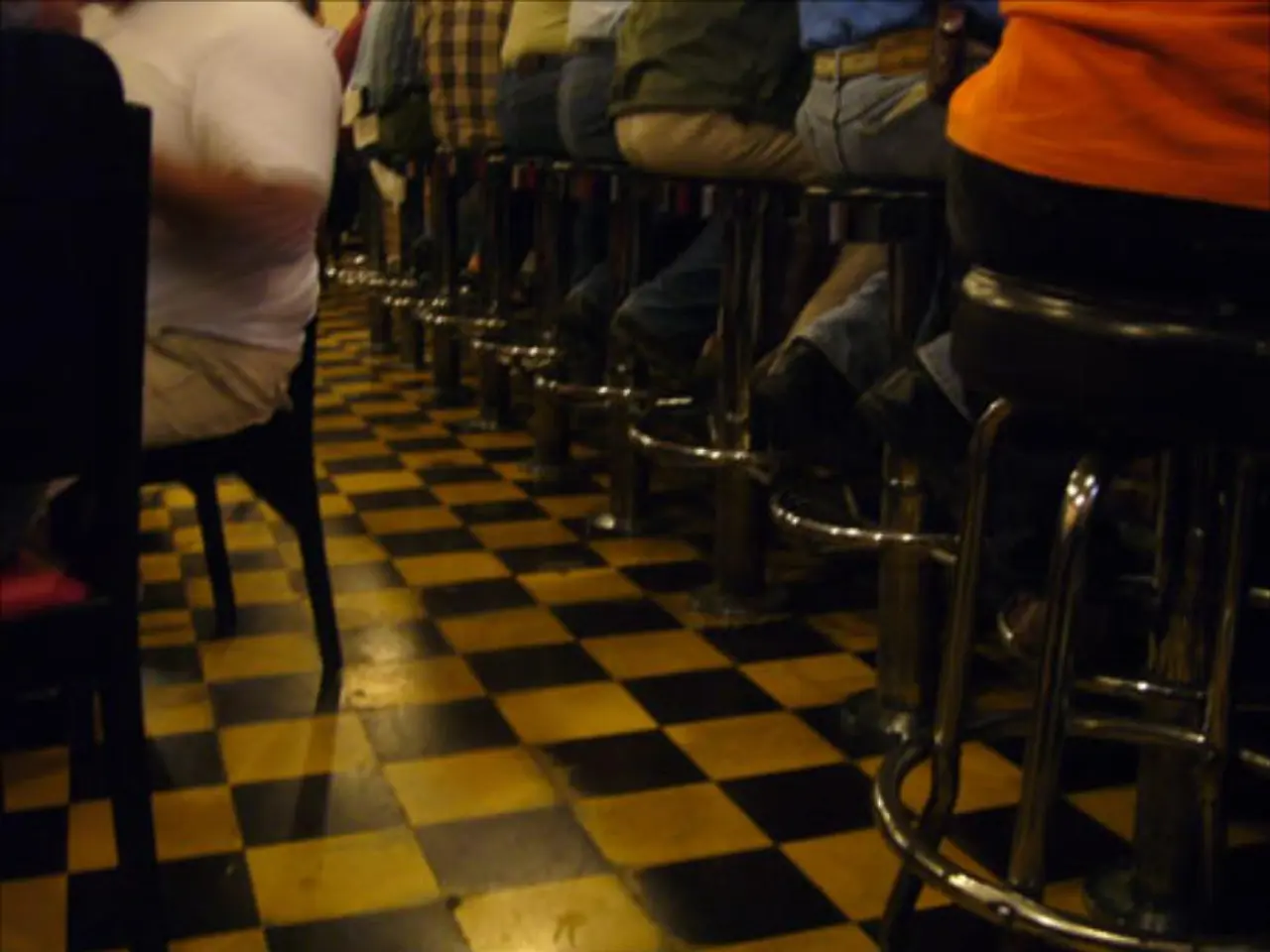Constipation: Understanding the causes, ways to prevent, and possible treatments
In the world of child health, ensuring good hydration and maintaining a balanced diet are crucial for overall wellbeing. A lesser-discussed yet significant aspect is the prevention and management of chronic hard stools in children and babies. This issue, often resulting from the colon absorbing too much water, can lead to discomfort and potentially more serious complications.
The primary causes of chronic hard stools stem from factors that slow bowel movement or reduce stool bulk and water content. These factors include low dietary fiber intake, insufficient hydration, sedentary lifestyles, ignoring bowel urges, certain medications, and high consumption of ultra-processed foods.
Dietary fiber, found in fruits, vegetables, whole grains, legumes, and nuts, plays a vital role in retaining water in stool, making it softer and easier to pass. A diet low in these food groups can contribute to hard stools. Similarly, not drinking enough fluids causes the colon to absorb more water from stools, resulting in dryness and hardness.
Leading a sedentary lifestyle, characterized by prolonged sitting and lack of physical activity, slows colonic transit, increasing water absorption and stool hardness. Delaying defecation, or ignoring bowel urges, also reduces rectal sensitivity and allows stool to remain longer in the colon, further drying it out.
Certain medications, such as opioids, iron supplements, antihistamines, and some blood pressure medications, can cause constipation and hard stools. High consumption of ultra-processed foods, low in residue and rich in emulsifiers, can disrupt gut microbiota, impairing bowel regularity.
Preventative measures to avoid chronic hard stools include eating a high-fiber diet, drinking plenty of fluids, engaging in regular physical activity, responding promptly to bowel urges, avoiding excessive use of constipating medications, limiting processed and fried foods, and maintaining a consistent bowel routine.
In persistent cases, medical options like osmotic or stool-softening laxatives, bulk-forming agents, or enemas may be recommended to alleviate hard stools and prevent complications like fecal impaction or hemorrhoids.
It's important to remember that parents and caregivers should consult a doctor before giving a child constipation medication. Additionally, it's essential to avoid getting angry or punishing a child for toileting accidents, as this may impair a child's ability to detect when they need to use the bathroom.
Allowing the child to do something fun while sitting on the toilet may help the child view toileting as a positive experience. Making regular bathroom visits can also encourage a child to poop.
In conclusion, adopting lifestyle and dietary changes focusing on fiber, hydration, activity, and bowel habits are the cornerstone of preventing chronic hard stools in children and babies. By understanding the causes and implementing preventative measures, we can help ensure the overall health and wellbeing of our little ones.
[1] Mayo Clinic. (2021). Constipation in Children. https://www.mayoclinic.org/diseases-conditions/constipation-in-children/symptoms-causes/syc-20350189 [2] National Institute of Diabetes and Digestive and Kidney Diseases. (2021). Constipation in Children. https://www.niddk.nih.gov/health-information/digestive-diseases/constipation-children [3] American Academy of Pediatrics. (2020). Constipation in Children and Adolescents. https://www.healthychildren.org/English/health-issues/conditions/digestive-disorders/Pages/Constipation-in-Children-and-Adolescents.aspx [4] American Academy of Family Physicians. (2021). Constipation in Children. https://familydoctor.org/condition/constipation-in-children/ [5] KidsHealth. (2021). Constipation. https://kidshealth.org/en/parents/constipation.html
- Although child health often focuses on hydration and diet, preventing and managing chronic hard stools is equally important for overall wellbeing.
- Chronic hard stools can originate from factors that slow bowel movement or decrease stool bulk and water content.
- Low dietary fiber intake, insufficient hydration, sedentary lifestyles, ignoring bowel urges, certain medications, and excessive consumption of ultra-processed foods are primary causes of chronic hard stools.
- Dietary fiber, abundant in fruits, vegetables, whole grains, legumes, and nuts, retains water in stool, making it softer and easier to pass.
- Not drinking enough fluids allows the colon to absorb more water from stools, resulting in dryness and hardness.
- Leading a sedentary lifestyle slows colonic transit, increasing water absorption and stool hardness.
- Delaying defecation reduces rectal sensitivity and allows stool to remain longer in the colon, further drying it out.
- Certain medications, such as opioids, iron supplements, antihistamines, and some blood pressure medications, can cause constipation and hard stools.
- High consumption of ultra-processed foods can disrupt gut microbiota, impairing bowel regularity.
- Preventative measures for chronic hard stools include eating a high-fiber diet, drinking plenty of fluids, engaging in regular physical activity, responding promptly to bowel urges, avoiding excessive use of constipating medications, limiting processed and fried foods, and maintaining a consistent bowel routine.
- In persistent cases, medical options like osmotic or stool-softening laxatives, bulk-forming agents, or enemas may be recommended.
- Parents and caregivers should consult a doctor before giving a child constipation medication to ensure appropriate treatments.
- Aggressive or punishing actions towards a child for toileting accidents may impair their ability to detect when they need to use the bathroom.
- Encouraging children to do something enjoyable while sitting on the toilet may help them view toileting positively.
- Regular bathroom visits can also encourage children to poop and help prevent chronic hard stools.
- By understanding the causes and implementing preventative measures, we can help ensure the overall health and wellbeing of our children in various aspects, such as digestive, health, and mental health.
- While addressing children's health issues, it's essential to consider environmental factors like climate change and its impact on water access and food security.
- Additionally, addressing adult health challenges like cancer, respiratory conditions, digestive health, eye health, hearing, health and wellness, fitness and exercise, sexual health,autoimmune disorders, neurological disorders, skin care, and weight management is crucial to creating a holistic approach to health care and wellness, encompassing men's health, women's health, parenting, and aging.




